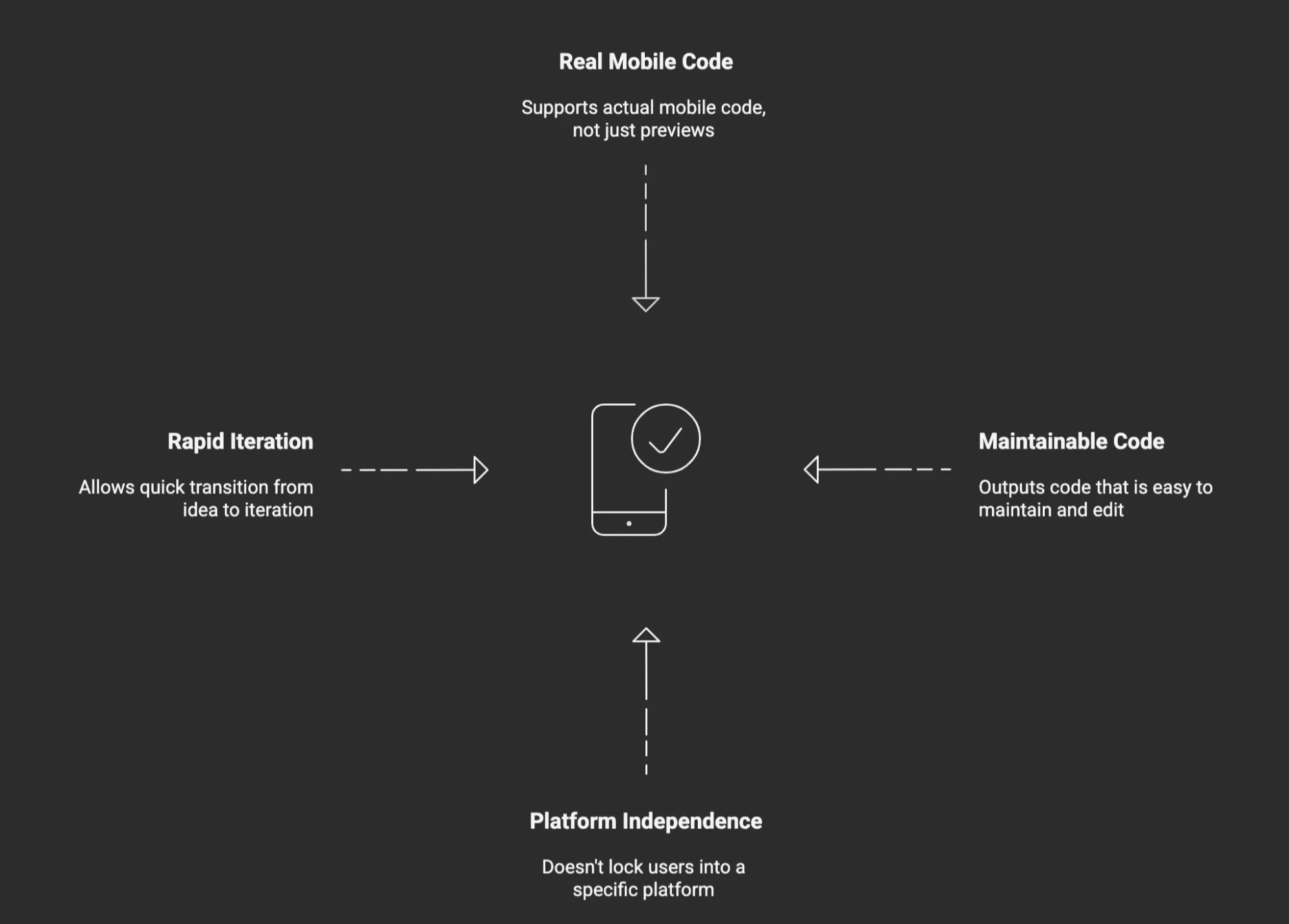Top Prompt-to-App Mobile Builders 2025 – RapidNative
Top prompt-to-app strategies for mobile builders in 2025—how RapidNative helps native app creators iterate with AI, design and launch fast.
By Suraj
1st Aug 2025


In 2025, AI-powered prompt-to-app tools are transforming how mobile apps are built. These tools let you describe what you want in natural language — and generate actual working apps for iOS and Android.
But not all builders are created equal. Many are still web-first, some output unusable prototypes, and others don't export code.
Here's a curated list of the best mobile-first prompt-to-app tools, optimized for real-world use, production-grade code, and fast iteration.
1. RapidNative — Built for React Native
What it is: RapidNative is a prompt-to-app builder that outputs real React Native code — not mockups, not wireframes. You type a prompt, and it scaffolds a usable mobile UI styled with NativeWind and Expo-ready code.
Why it stands out:
- Mobile-native first: Not repurposed from web builders
- Chat-based interface: You can refine the screens using simple messages
- Exports usable React Native code (not locked behind a platform)
- Uses modern styling and navigation libraries
- Developers can continue editing like any RN project
Whether you're a founder validating an idea or a developer looking to skip boilerplate, RapidNative bridges speed and control. It's built for mobile, period.
2. Google Stitch — Design from Prompts and Figma
What it is: Stitch is Google's experimental prompt-to-design tool that now supports mobile layout generation. Originally focused on web, it has expanded to mobile-first components and screen generation, especially for Android.
Why it stands out:
- Accepts both Figma files and natural language prompts
- Suggests layouts, components, and flows intelligently
- Ideal for early-stage mobile UX prototyping
- Google's backing ensures ongoing improvements
While Stitch currently outputs more design structure than production code, its mobile awareness and Android-first thinking make it useful in early concept stages — especially when paired with Firebase or Flutter devs later.
3. V0.dev — UI Generation from Prompt or Figma
What it is: V0.dev, by Vercel Labs, supports prompt-to-code workflows and now includes mobile UI generation. It's better known for web/React, but also supports React Native component output.
Why it stands out:
- Strong Figma → Code support
- Prompt-based UI scaffolding (e.g., "login screen with dark mode")
- Clean component-level code output (React or React Native)
- Built by Vercel — fast, modern stack
V0 is best for developers who want to skip the grunt work of UI scaffolding and want precise control over what's generated. It's a dev-centric tool with growing mobile capabilities.
4. Relume — Fast Design-to-Mobile with Code Export
What it is: Originally a web-focused builder, Relume now offers mobile layout scaffolding from prompts. It's more design-first but allows Figma handoff and clean React Native export.
Why it stands out:
- Componentized output that's readable and extendable
- Great for design-to-dev workflows
- Can pair with other dev tools for full mobile build pipeline
Not as robust on backend logic or interactivity, but perfect for turning static ideas into mobile screen sets quickly.
5. Locofy.ai — UI Builder with Mobile-First Components
What it is: Locofy converts Figma designs into code — now including mobile-ready React Native output. It recently added prompt-based layout suggestions and automatic responsiveness.
Why it stands out:
- Optimized for mobile UIs (scroll, gestures, etc.)
- Syncs with Figma + design tokens
- Developer-friendly with working output
Not a full app builder, but great at translating design → working mobile components with clean handoff.
Final Thoughts
When choosing a prompt-to-app builder for mobile, make sure the tool:
- Supports real mobile code (not just HTML previews)
- Outputs maintainable, editable code (preferably React Native)
- Doesn't lock you into a platform
- Lets you go from idea to iteration — quickly
For founders, these tools mean MVPs in days.
For devs, they skip boilerplate and free you to focus on the hard parts.
Ready to Build Your mobile App with AI?
Turn your idea into a production-ready React Native app in minutes. Just describe what you want to build, andRapidNative generates the code for you.
No credit card required • Export clean code • Built on React Native & Expo